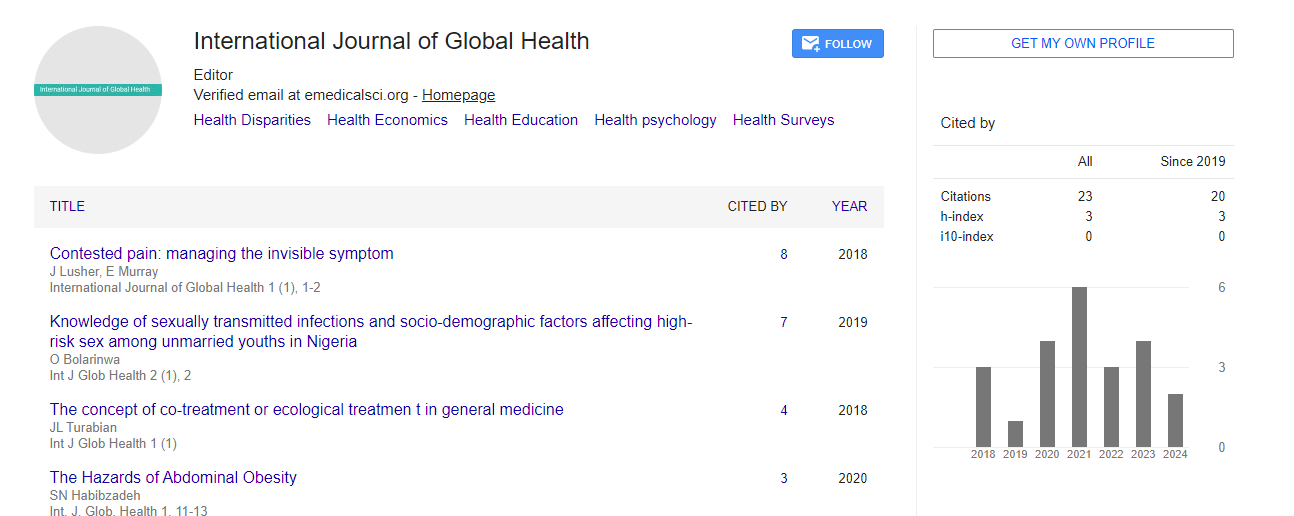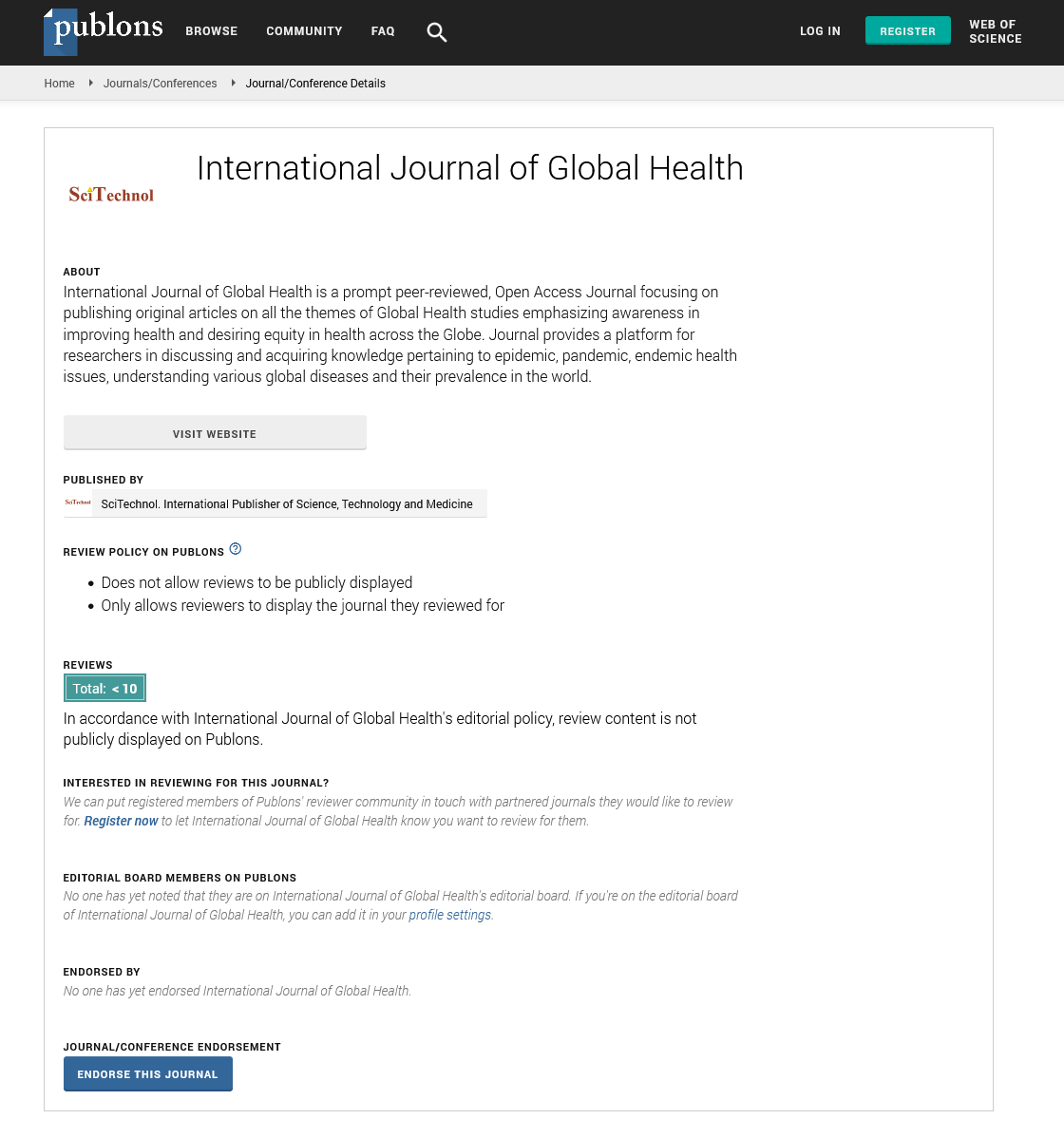Opinion Article, Int J Glob Health Vol: 6 Issue: 4
Global Perspectives on Infectious Disease Control: Current Strategies and Future Challenges
Jane Wzengoa*
1Department of International Health, Oasis College, Serenitytown, South Africa
*Corresponding Author: Jane Wzengoa,
Department of International Health,
Oasis College, Serenitytown, South Africa
E-mail: Jane4235_w@gmail.com
Received date: 27 November, 2023, Manuscript No. IJGH-24-125955;
Editor assigned date: 29 November, 2023, PreQC No. IJGH-24-125955(PQ);
Reviewed date: 14 December, 2023, QC No. IJGH-24-125955;
Revised date: 21 December, 2023, Manuscript No. IJGH-24-125955(R);
Published date: 28 December, 2023, DOI: 10.4172/Ijgh.1000197
Citation: Wzengoa J (2023) Global Perspectives on Infectious Disease Control: Current Strategies and Future Challenge. Int J Glob Health 6:4.
Description
Infectious disease control is a critical global health priority, with ongoing challenges and evolving strategies that demand attention and collaboration across borders. The current landscape of infectious disease control reflects a complex interplay of factors, including globalization, urbanization, climate change, and the unprecedented challenges posed by emerging pathogens. As the world grapples with the ongoing COVID-19 pandemic, it becomes evident that a comprehensive and adaptable approach is necessary to address current threats and prepare for future challenges. One of the cornerstones of infectious disease control is international collaboration. The interconnected nature of our world demands a collective response to outbreaks, as demonstrated by the global efforts to combat the spread of the novel coronavirus. Countries and organizations have shared information, resources, and expertise to develop vaccines, treatments, and public health measures. The success of such collaborative efforts hinges on transparent communication, data sharing, and equitable access to medical advancements.
Current strategies for infectious disease control also emphasize the importance of robust surveillance systems. Early detection and monitoring of outbreaks allow for timely response and containment efforts. Advances in technology, such as genomics and data analytics, play a crucial role in enhancing surveillance capabilities. Real-time tracking and analysis of infectious agents enable a more targeted and effective response to prevent the escalation of outbreaks. Vaccination remains a cornerstone in preventing infectious diseases, with global vaccination campaigns playing a pivotal role in reducing the burden of preventable illnesses. However, achieving widespread vaccination coverage poses challenges, including vaccine hesitancy, distribution disparities, and logistical hurdles. Addressing these issues requires a multifaceted approach that involves community engagement, education, and investment in healthcare infrastructure.
The future challenges of infectious disease control are multifaceted and underscore the need for continued innovation. Antimicrobial resistance, driven by the overuse of antibiotics, poses a significant threat to public health. The development of new antimicrobial agents and stewardship programs to promote responsible use are crucial in mitigating this emerging challenge. Additionally, the impacts of climate change on infectious disease dynamics, including the spread of vectors and changing disease patterns, require adaptive strategies to minimize health risks. Global health security is intrinsically linked to socioeconomic factors.
Disparities in access to healthcare, education, and resources contribute to the vulnerability of certain populations to infectious diseases. Addressing these disparities is essential for building resilient and equitable health systems that can effectively respond to outbreaks. Overuse and misuse of antibiotics have led to the emergence of antimicrobial resistance, rendering common treatments ineffective against bacterial infections. Continued innovation is needed to develop new antimicrobial agents. Stewardship programs are crucial to promote responsible use, ensuring that antibiotics are prescribed judiciously and patients adhere to treatment regimens.
Conclusion
In conclusion, infectious disease control is a dynamic and evolving field that demands a coordinated global response. Current strategies emphasize collaboration, surveillance, vaccination, and innovation. Looking ahead, challenges such as antimicrobial resistance, climate change, and health inequalities will require ongoing adaptation and investment. A collective commitment to strengthening healthcare systems, promoting global equity, and embracing scientific advancements is essential in building a more resilient world capable of effectively managing infectious disease threats.
 Spanish
Spanish  Chinese
Chinese  Russian
Russian  German
German  French
French  Japanese
Japanese  Portuguese
Portuguese  Hindi
Hindi 
